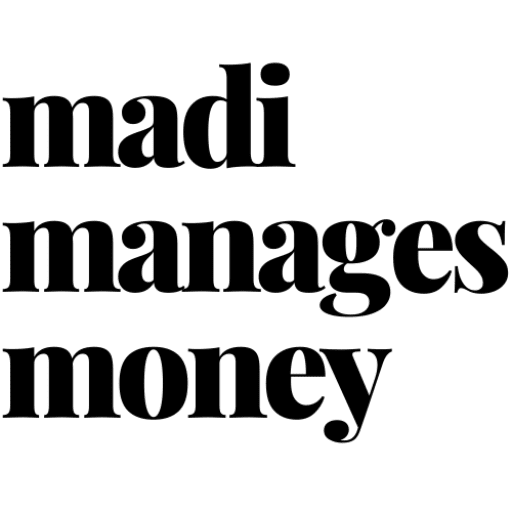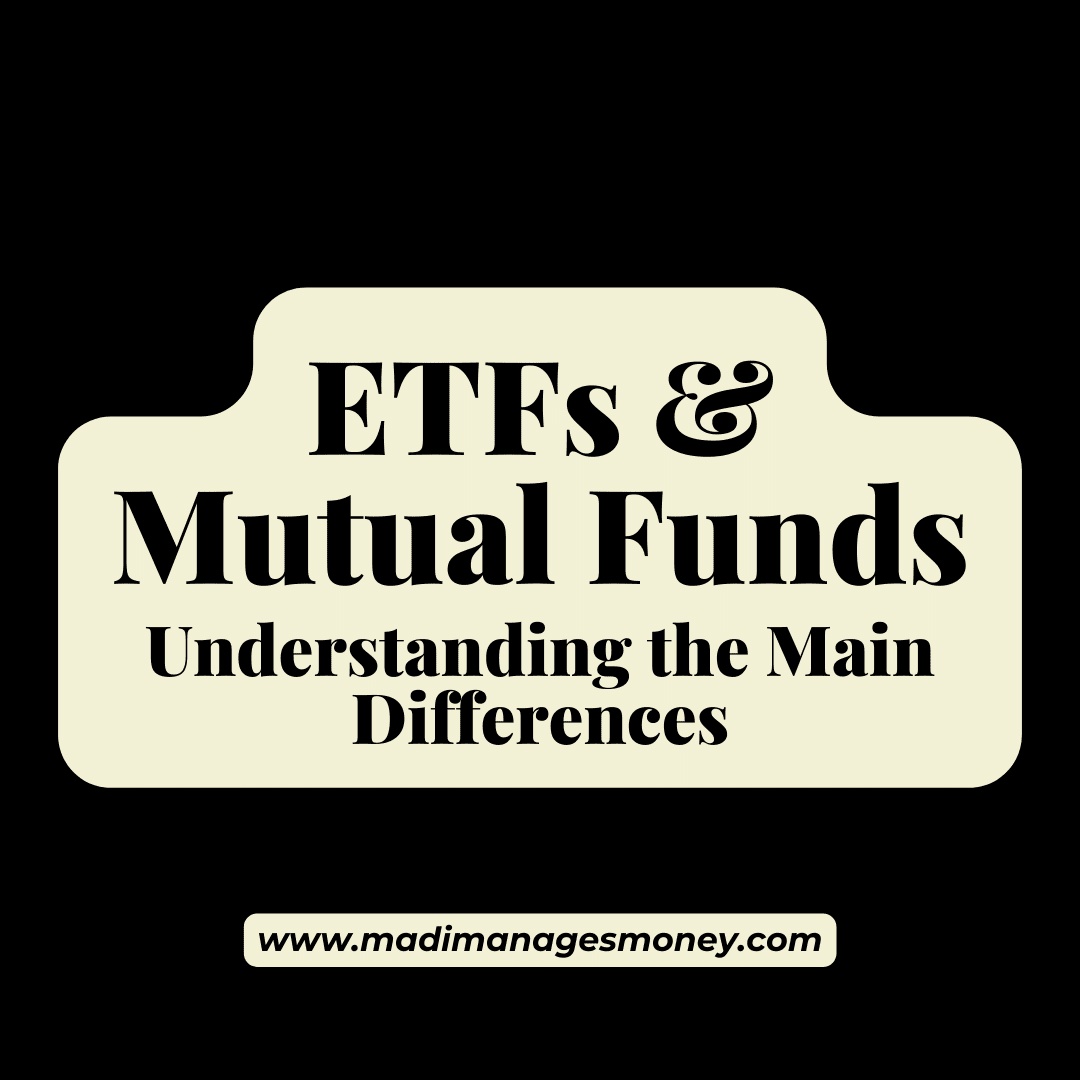Scratch the surface of the personal finance community and you’ll probably run into the terms mutual fund and exchange-traded fund (ETF). But what are they, what are their differences, and most importantly, is one better than the other?
Mutual funds and ETFs actually have a ton in common. Both are investment vehicles 🚗 🚙 that provide you with access to a basket of underlying investments, like stocks and bonds. They can be an easy way to diversify your portfolio.
Mutual funds are like the OG diversified investment. They’ve been around since 1923. ETFs, on the other hand, are pretty new in comparison. The first one began trading in 1993 and changed the game. (It still exists today and tracks the S&P 500 Index.) Since then, thousands have launched, providing people like you and me with access to virtually every market in the world at lower and lower costs.
Here are the key differences that you should understand, especially if you’re buying in a taxable brokerage account.
When you can buy and sell them is different.
ETFs have what’s called ‘intraday liquidity,’ which is a finance-y way to say you can buy and sell them throughout the day. In this regard, they trade a lot like stocks. For folks who are active traders, this is a lure to ETFs.
Mutual funds only transact once at the end of the day, at what’s called the net asset value (NAV) of the fund. Think of NAV like net worth but for a mutual fund and not a person.
Any trades entered today will execute at tomorrow’s end-of-day NAV. But before you consider trying to time the market with a favorable purchase, it doesn’t really work that way.
For example, if you enter your trade on a Tuesday, it will be executed at the closing price on Wednesday. It’s virtually impossible to predict what the market will do between the time you enter your order and when it’s executed.
While frequency of trading is a key difference between the two, it’s not really that important when you’re a long-term investor. If you’re buying shares to hold for the next 20 years, it’s not going to matter much if you were able to buy them this morning when the urge struck or had to wait until the end of tomorrow.
ETFs are known for being passive investments. Mutual funds are known for being active.
Until the past few years, ETFs were synonymous with “index funds,” because virtually all were passive. Passive investments do their best to match the performance of an index, like the S&P 500, for example.
Mutual funds historically have had active mandates, meaning their portfolio managers buy and sell investments at their discretion to meet a certain objective. With active management often comes higher costs to the investors in the form of an expense ratio.
This line has been blurred a bit over the past several years. More ETFs now have active management mandates, and mutual funds that track an index also exist. On average, however, this distinction between the two still holds.
Research shows that, on average, the benefit investors *might* receive from selecting an actively managed fund is often negated by the relatively higher expense ratio the fund charges.
~Taxes~ Take a deep breath and a chug of your coffee.
Taxes, I’d argue, can be the biggest difference between mutual funds and ETFs over the long-haul, if you’re purchasing in a taxable investment account. But, if you’re purchasing in a tax-favored account (like your 401(k) or IRA), it honestly doesn’t make much of a difference.
ETFs are generally more tax-efficient than mutual funds because they have fewer “taxable events.” A taxable event is anything that would trigger the sale of the underlying investments within a fund.
Mutual funds tend to have more taxable events for two reasons.
The first is the method by which mutual fund shareholders redeem shares. When you sell shares, you’re actually selling them back to the fund. This is called a redemption. If a lot of shareholders redeem at one time, the fund manager might need to sell investments to raise proceeds to cash them out.
ETFs, in contrast, trade by way of creation units. Creation units are like your own little bundle of investments that closely matches the overall target allocation of the fund.
When you sell a share of the ETF, instead of selling it back to the fund to be redeemed, you’re usually trading it on the open market to someone else who wants to buy your little bundle. This means that the underlying investments themselves don’t get sold. They ride in your little bundle to the next willing buyer.
The second reason is because of active management in mutual funds. Funds that are diversified and actively managed usually have target portfolio weights. The fund managers buy and sell underlying investments to match their target portfolio weights.
The selling that they do, if done at a gain, can trigger a taxable event to shareholders. This comes in the form of something called a capital gains distribution.
Because ETFs are passive investments that track the performance of an index, their managers are less likely to need to buy and sell underlying investments. This makes them less likely to incur capital gains taxes.
Let’s take an ETF that mimics the S&P 500 Index as an example. The S&P 500 Index tracks the performance of the stocks of about 500 large, influential US companies. In any given year, only about 4-5% of those companies are removed from or added to the index. And of those companies removed (sold), they’re more likely to be ones that have fallen from grace.
Which one is better?
Like most decisions in finance, it depends. Your family’s situation and financial goals are unique and should be considered before making a selection.
But, if you already own one or the other and are worried that maybe you didn’t make the optimal choice – don’t stress. There are a lot of different investments out there that can fulfill the same purpose. Generally, if you’re well diversified, invest for the long haul according to your risk tolerance, and hold mutual funds or ETFs with low expense ratios, you’ll be alright. 🤗
The opinions voiced in this material are for general information only and are not intended to provide specific advice or recommendations for any individual. To determine which investments may be appropriate for you, consult with your financial advisor.

